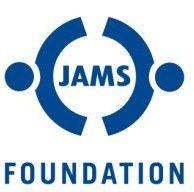CONFLICT RESOLUTION
Court cases and hearings bring accountability to an education system and ensure individual rights; however, they are also costly, time-consuming, and can reduce the flexibility of schools and parents to respond to individual needs. A broad range of alternatives to formal legal proceedings at all stages of conflict is necessary for a robust special education system. SchoolTalk works with District of Columbia schools, families, related government agencies, and community organizations, to improve the communication and dispute resolution processes associated with the delivery of special education services. We were founded by some of the area’s leading experts in law, special education, and alternative dispute resolution to address the lack of dispute prevention and early intervention opportunities that permit parents and school personnel to resolve issues before they escalate. SchoolTalk serves as a neutral resource for all stakeholders.
Our Strategies:
- Technical assistance in a wide range of conflict resolution process including Restorative Justice & practices, mediation, facilitation, and negotiation;
- Training of parents, school personnel, and other special education stakeholders in dispute resolution skills and techniques;
- Facilitation of meetings between parents and school staff;
- Conflict prevention and resolution coaching; and
- Forums for multiple stakeholders to come together to identify issues and work toward solutions.
Restorative DC
![]()
Purpose: Restorative DC works to integrate whole school Restorative Practices in five DC schools through an innovative formula of school and core team selection, school-driven planning, and individualized implementation. Restorative Practices offer a school community a concrete and effective approach to building school culture and responding to harm in a way that embraces relationships, inclusiveness, and accountability. How can students to take responsibility for his or her actions, repair the harm, and learn the skills needed to avoid the same problem next time? The Implementation team provides customized capacity building and intensive locally based technical support. Measurable outcomes include reduction of suspensions and expulsions; an increase in school performance and morale; and school culture shift to become centered on relationships, inclusivity, and accountability.
People Served: DC students
Power with Partners: DC Office of the State Superintendent of Education, five DC schools, DC Office of the Attorney General, DC Office of Human Rights
Conflict Resolution Training & Technical Assitance
![]()
Technical Assistance
SchoolTalk provides technical assistance in conflict resolution systems design, needs assessment and evaluation, and organizational change management. SchoolTalk has provided conflict resolution technical assistance to the following organizations:
- DC Office of the Ombudsman for Public Education
- DC Office of Dispute Resolution, The Office of the State Superintendent of Education
- District of Columbia Public Schools
- DC Department on Disability Services
Training
SchoolTalk is committed to enhancing the capacity of schools and families to work together to meet the needs of children with disabilities in the District of Columbia. The workshops we provide are interactive and tailored to meet the specific needs of the participants. Topics:
- Conflict Resolution
- Problem-solving
- Communication and Conflict Resolution Skills
- Interest-based Negotiation
- Mediation
- Facilitation
- Restorative Justice (Various Topics)
- Student-led IEPs
- Secondary Transition (Various Topics)
- Arts Integration for Special Education
- Others available, on request
Please contact Leila Peterson for more information. (202) 907-6887, leila.peterson@schooltalkdc.org.
Resolving Conflict on the Job for Students with Disabilities Curriculum
Purpose: To build upon conflict resolution education for students with disabilities by creating a curriculum designed to help them develop the knowledge, skills and attitudes necessary to successfully identify and manage conflict in the workplace. This curriculum, designed to fully support people with diverse abilities, including those with significant physical, intellectual, behavioral, and communication challenges, leverages the benefits and strengths of arts education. In addition to following Universal Design for Learning curriculum development guidelines, this curriculum includes arts activities as a method of instructional content delivery; to provide additional strategies for differentiation, and as a means to help students develop self-awareness, self-concept, and self-expression.
People Served: DC transition-aged youth with disabilities (14-21 years old) with a broad range of disabilities from diverse backgrounds in terms of race and ethnicity, and socio-economic status
Power with Partners: DC schools, DC Re-Engagement Center, DC Voices of Change Peer Network, DC RSA, National Collaborative on Workforce and Disability / YouthACT
The Resolving Conflict on the Job for Students with Disabilities curriculum is made possible by support from the JAMS Foundation.

